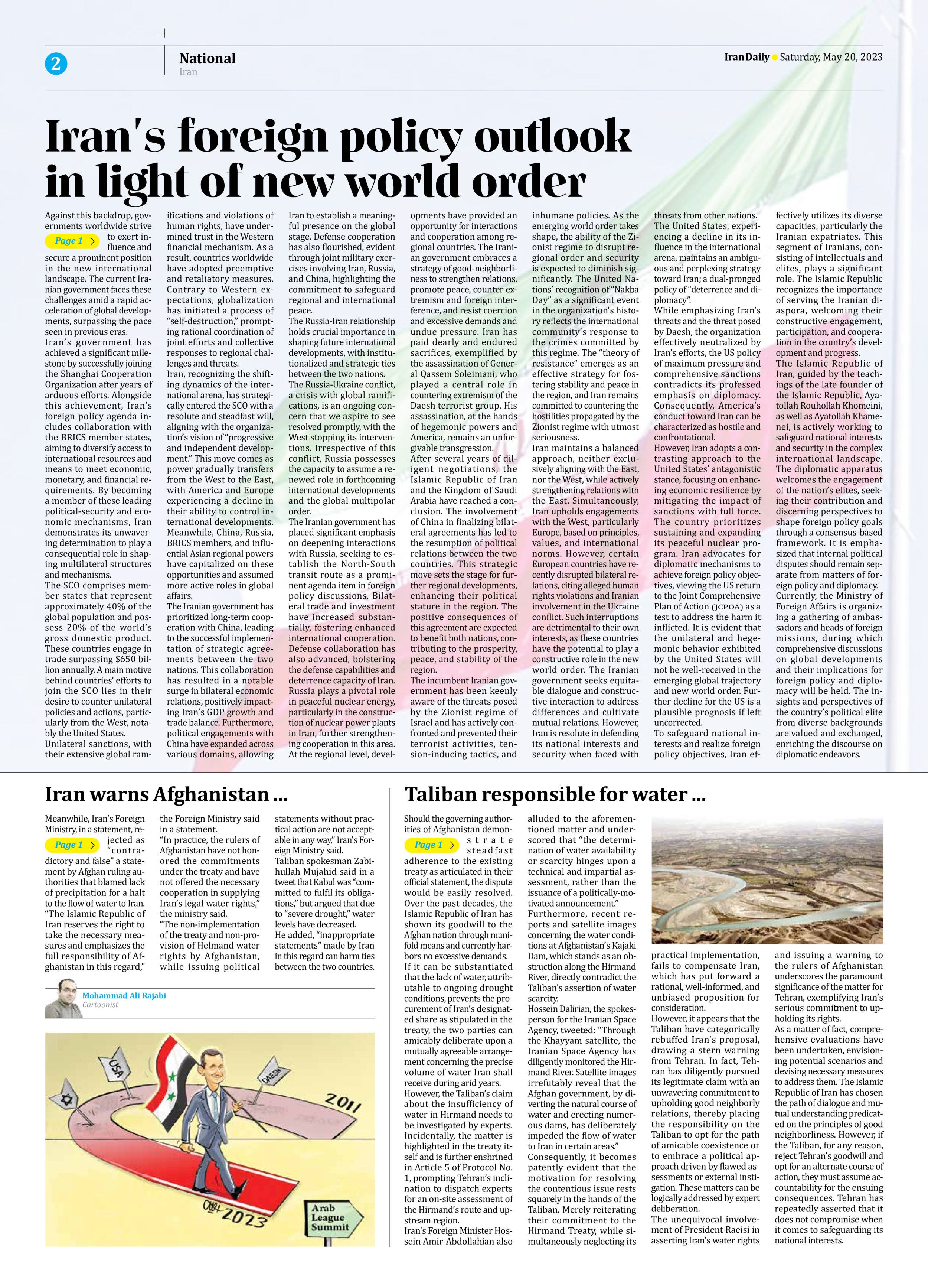
Copy in clipboard...
Taliban responsible for water ...
Should the governing authorities of Afghanistan demonstrate steadfast adherence to the existing treaty as articulated in their official statement, the dispute would be easily resolved. Over the past decades, the Islamic Republic of Iran has shown its goodwill to the Afghan nation through manifold means and currently harbors no excessive demands.
If it can be substantiated that the lack of water, attributable to ongoing drought conditions, prevents the procurement of Iran’s designated share as stipulated in the treaty, the two parties can amicably deliberate upon a mutually agreeable arrangement concerning the precise volume of water Iran shall receive during arid years.
However, the Taliban’s claim about the insufficiency of water in Hirmand needs to be investigated by experts. Incidentally, the matter is highlighted in the treaty itself and is further enshrined in Article 5 of Protocol No. 1, prompting Tehran’s inclination to dispatch experts for an on-site assessment of the Hirmand’s route and upstream region.
Iran’s Foreign Minister Hossein Amir-Abdollahian also alluded to the aforementioned matter and underscored that “the determination of water availability or scarcity hinges upon a technical and impartial assessment, rather than the issuance of a politically-motivated announcement.”
Furthermore, recent reports and satellite images concerning the water conditions at Afghanistan’s Kajaki Dam, which stands as an obstruction along the Hirmand River, directly contradict the Taliban’s assertion of water scarcity.
Hossein Dalirian, the spokesperson for the Iranian Space Agency, tweeted: “Through the Khayyam satellite, the Iranian Space Agency has diligently monitored the Hirmand River. Satellite images irrefutably reveal that the Afghan government, by diverting the natural course of water and erecting numerous dams, has deliberately impeded the flow of water to Iran in certain areas.”
Consequently, it becomes patently evident that the motivation for resolving the contentious issue rests squarely in the hands of the Taliban. Merely reiterating their commitment to the Hirmand Treaty, while simultaneously neglecting its practical implementation, fails to compensate Iran, which has put forward a rational, well-informed, and unbiased proposition for consideration.
However, it appears that the Taliban have categorically rebuffed Iran’s proposal, drawing a stern warning from Tehran. In fact, Tehran has diligently pursued its legitimate claim with an unwavering commitment to upholding good neighborly relations, thereby placing the responsibility on the Taliban to opt for the path of amicable coexistence or to embrace a political approach driven by flawed assessments or external instigation. These matters can be logically addressed by expert deliberation.
The unequivocal involvement of President Raeisi in asserting Iran’s water rights and issuing a warning to the rulers of Afghanistan underscores the paramount significance of the matter for Tehran, exemplifying Iran’s serious commitment to upholding its rights.
As a matter of fact, comprehensive evaluations have been undertaken, envisioning potential scenarios and devising necessary measures to address them. The Islamic Republic of Iran has chosen the path of dialogue and mutual understanding predicated on the principles of good neighborliness. However, if the Taliban, for any reason, reject Tehran’s goodwill and opt for an alternate course of action, they must assume accountability for the ensuing consequences. Tehran has repeatedly asserted that it does not compromise when it comes to safeguarding its national interests.







